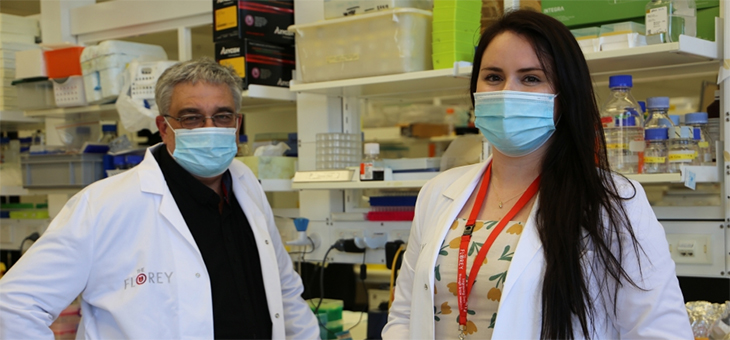Researchers are raising the alarm about a ‘silent wave’ of COVID-19 after uncovering a potential link to Parkinson’s disease and other neurological conditions.
Some of these conditions, such as loss of smell, are now widely known, but there are also more concerning neurological symptoms, such as a lack of oxygen to the brain.
Scientists at Australian brain research centre the Florey Institute are examining the potential link between COVID-19 and increased risk of Parkinson’s disease, and believe it is clear that the virus is capable of causing longer-term brain damage.
Professor Kevin Barnham said that while scientists were still learning about the link between the virus and neurological conditions, they required more accurate diagnostic tools to identify neurodegeneration early on and a long-term monitoring approach for people who have been infected with COVID-19.
“Although scientists are still learning how the SARS-CoV-2 virus is able to invade the brain and central nervous system, the fact that it’s getting in there is clear,” Prof. Barnham said.
“Our best understanding is that the virus can cause insult to brain cells, with potential for neurodegeneration to follow on from there.”
The Florey Institute’s research paper, titled Parkinsonism as a Third Wave of the COVID-19 Pandemic, says that the COVID patients who have suffered a loss of the sense of smell may present a way forward in detecting their Parkinson’s risk.
Florey Institute researcher Leah Beauchamp said that the loss of the sense of smell was still quite common in COVID patients.
“We found that loss of smell or reduced smell was on average reported in three out of four people infected with the SARS-CoV-2 virus,” she said.
“While on the surface this symptom can appear as little cause for concern, it actually tells us a lot about what’s happening on the inside and that is that there’s acute inflammation in the olfactory system responsible for smell.
“We believe that loss of smell presents a new way forward in detecting someone’s risk of developing Parkinson’s disease early.
“Armed with the knowledge that loss of smell presents in around 90 per cent of people in the early stages of Parkinson’s disease and a decade ahead of motor symptoms, we feel we are on the right track.”
Clinical diagnosis of Parkinson’s disease currently relies on presentation of motor dysfunction, but research shows that by this time 50–70 per cent of dopamine cell loss in the brain has already occurred.
“By waiting until this stage of Parkinson’s disease to diagnose and treat, you’ve already missed the window for neuroprotective therapies to have their intended effect,” Prof. Barnham explained.
“We are talking about an insidious disease affecting 80,000 people in Australia, which is set to double by 2040 before even considering the potential consequences of COVID, and we currently have no available disease-modifying therapies,” he said.
According to Parkinson’s Australia, there are currently four key ‘motor’ symptoms that can signal the onset of the disease. These are tremors, slowness of movement, muscle rigidity and postural instability or falls.
Generally, you must have slowness of movement and at least one other symptom for a diagnosis of Parkinson’s to be considered.
There is also a range of other symptoms that people with Parkinson’s can experience, these may include, small handwriting, no arm swing when walking, shuffling gait, freezing of movement, sleep disorders, cognitive (thinking) changes, mood disorders such as depression and anxiety, pain, fatigue, sensory changes and speech changes.
“We have to shift community thinking that Parkinson’s (is) not a disease of old age,” Prof. Barnham said. “As we’ve been hearing time and time again, the coronavirus does not discriminate – and neither does Parkinson’s.
“We can take insight from the neurological consequences that followed the Spanish flu pandemic in 1918 where the risk of developing Parkinson’s disease increased two to three-fold.
“Given that the world’s population has been hit again by a viral pandemic, it is very worrying indeed to consider the potential global increase of neurological diseases that could unfold down track.
“The world was caught off guard the first time, but it doesn’t need to be again. We now know what needs to be done.”
Do you, or does anyone you know, have Parkinson’s? How do you/they manage?
If you enjoy our content, don’t keep it to yourself. Share our free eNews with your friends and encourage them to sign up.
Related articles:
https://www.yourlifechoices.com.au/health/covid19/borders-reopened
https://www.yourlifechoices.com.au/health/covid19/how-singing-spreads-covid
https://www.yourlifechoices.com.au/health/covid19/centrelink-changes-could-sink-economy

